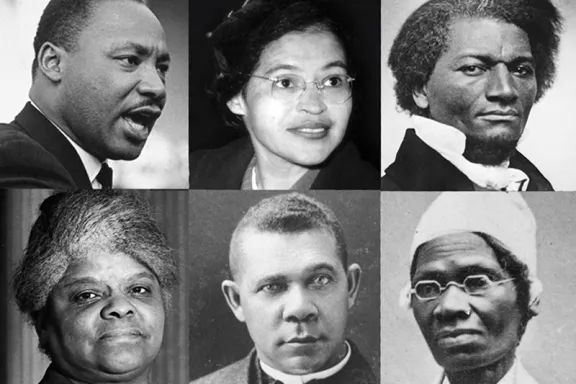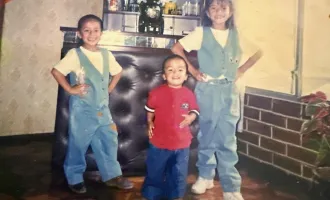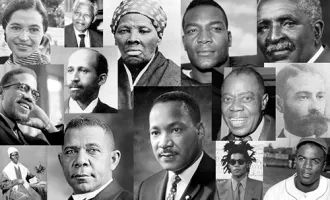
This Date in UCSF History: A Textbook Case of Historical Distortion
Originally authored by pharmacy student Gina Jones and published in Synapse on February 18, 1993.
“History is a people’s memory and without a memory a man is demoted to the lower animals.” - Malcolm X Black History is American History.
Often viewed as separate, African American history is actually inseparable from the essence of American life. African American history began with the first slave ship that crossed the Atlantic.
Black people began to play a significant role in American history from the moment we set foot on this land. However, the perception and treatment of Black people in this country does not reflect our contributions.
Nowhere is the negation of the significance of Black history more evident than in school history textbooks. They are filled with half-truths and omissions which create misconceptions in the minds of our youth.
Imagine if Black history was told in its entirety. How differently would we feel about ourselves? And how differently would other people feel about us?
All of us take for granted the power and impact that history has upon our lives.
When we are reared knowing the history of our forefathers and their contributions, are aware of their beauty and intelligence, and listen to others speak of their greatness, our path to success becomes natural, although not always easy.
Let us look at a different situation, the unfortunate distortion of history as written in textbooks. Black children are told that American forefathers gallantly arrived in this country on the Mayflower.
They know much less of the journey of their forefathers in the bowels of a slave ship. Black children are told of the institution of slavery, but little or nothing about the people who perpetrated this crime, and its dehumanizing effects on their ancestors.
Black children learn about George Washington, not George Washington Carver. The school curricula include Thomas Edison and Benjamin Franklin, but not Louis Latimer and Garrett Morgan.
English textbooks concentrate on Chaucer and Hemingway, while English teachers assign Shakespearean poems to students.
Why not also teach children about Ralph Ellison and Richard Wright, and have them read poems by Gwendolyn Brooks?
Why, when history textbooks chronicle wars and bloodshed, is there never mention of Charles Drew, whose isolation of blood plasma from whole blood saved hundreds of thousands of lives?
Black children should also know that Drew himself died because an all-white hospital refused to treat him after a car accident. He bled to death because he could not get access to blood plasma, his own discovery.
Why are Black children being taught the scholarship and accumulated knowledge of all people but their own?
Last week, out of curiosity, I thumbed through a Funk and Wagnall’s encyclopedia, 1956 edition, and tried to find Charles Drew or Garrett Morgan. No luck; they were overlooked.
I did find an entry for Jesse Owens, the African American track and field star. While Jesse Owens accomplished a great deal, encyclopedia entries for Black athletes only are not enough.
Our athletes are celebrated, our scientists are ignored. This is unacceptable. I want the world to know about the history of Black people — not starting with the Civil Rights
Movement but including our many contributions to building this society and indeed, other civilizations worldwide.
I want Black history taught not to encourage Black supremacy but to discourage Black inferiority.
Black history develops self-knowledge but does not contribute to anti-white racism. If we all take the time to learn about our own cultures and about one another, we will be able to respect our differences.
If we know about each other, prejudices and fears will diminish while racial harmony develops.
This healing process must begin with knowledge of ourselves, and an accurate knowledge of the history of all people.



